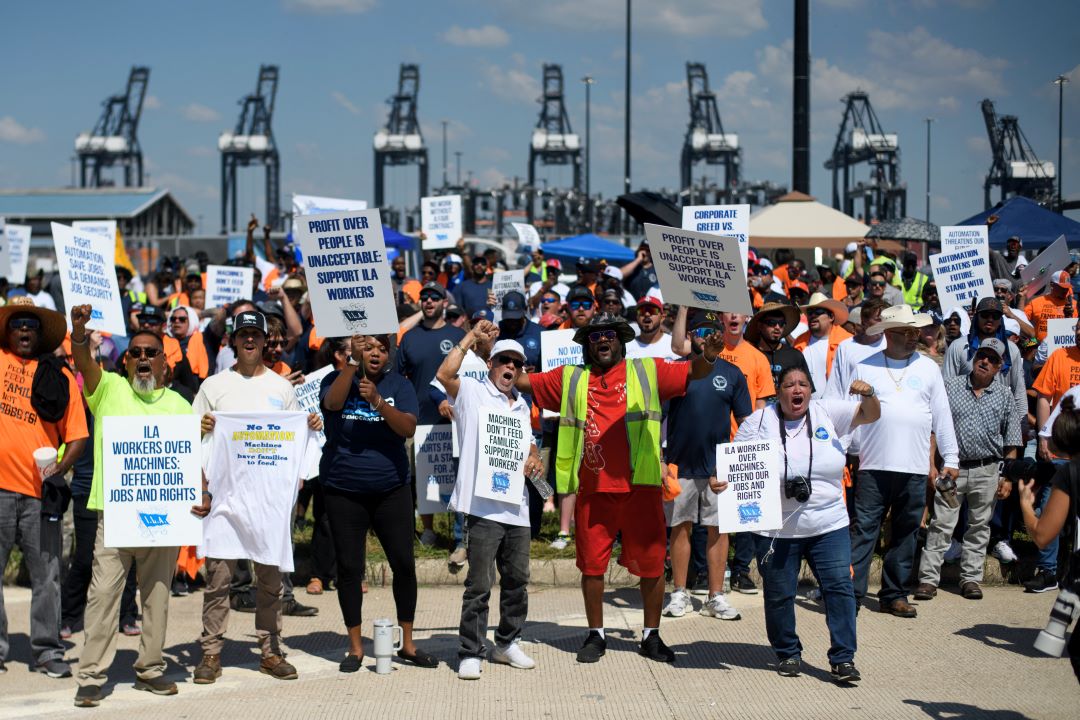So President Biden’s top aides swooped in with their renowned mediation skills, and saved the average American from a Christmas season of empty shelves and (even) higher prices stemming from a long dockworkers’ strike.
That’s the narrative the White House is peddling about its role in ending the three-day walkout.
Not so fast: Biden strong-armed the ports into a bad deal that in the long run will push up prices — and harm organized labor.
Last Tuesday, the 50,000-strong International Longshoremen’s Association (shouldn’t we call them longshorepeople?) struck against East Coast ports, including Port Authority of New York and New Jersey facilities, logjamming container shipments.
The ILA wanted a 77% raise over six years, and a freeze to automation of tasks. The ports, under the US Maritime Alliance, had proposed a 50% wage increase, and want more flexibility on automation.So the deal Biden achieved last week — 62% raises — is a nice compromise, right?
No: Biden achieved the deal through coercion — coercion his administration is proud of.
On the strike’s third morning, The Washington Post reported, Biden’s Chief of Staff Jeff Zients, with the support of Transportation Secretary Pete Buttigieg and Labor Secretary Julie Su, ended a call with port employers by telling them “he was going to tell Biden in about an hour that they had agreed to propose a new offer to the union…[T]he shipping executives had agreed to do no such thing.”
Continue reading the entire piece here at the New York Post
______________________
Nicole Gelinas is a senior fellow at the Manhattan Institute and contributing editor at City Journal. Follow her on Twitter here.
Photo by MARK FELIX/AFP via Getty Images
